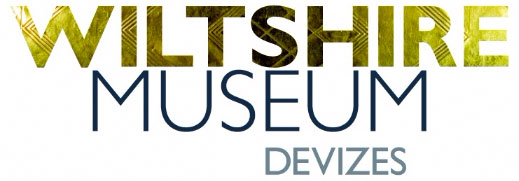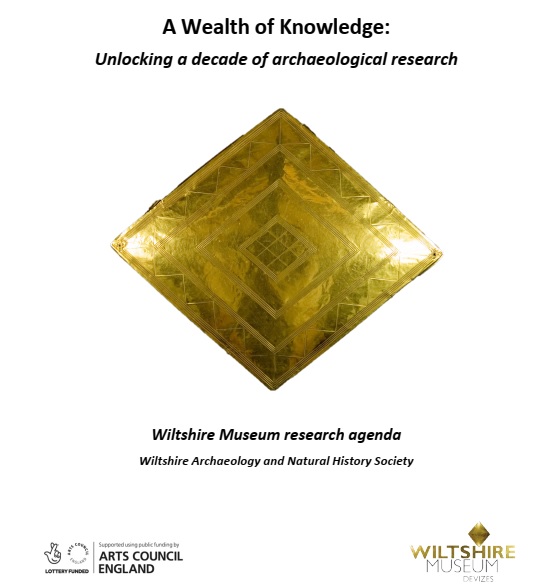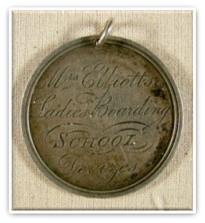Research
Our collections are Designated as being of National Significance and are a unique resource for those researching the archaeology, history, art or natural history of Wiltshire.
The collections are used by many different people, including school children undertaking projects, college students, undergraduates, graduates and post-graduates preparing dissertations and theses, as well as members of the public undertaking personal projects including family history research.
Our small staff do what we can to help researchers and enquirers and to give access to the reserve collections of the Museum, Archive and Library.
MUSEUM RESEARCH CHARTER
Research Overview
Over the past decade, we have welcomed more than 200 researchers from universities across the country to study the collections. This has helped to build our reputation as a centre of academic research, making the Wiltshire Museum a focal point for some of the latest scholarly work undertaken and ultimately increasing our knowledge of the past. Many of these researchers have come to study our nationally important archaeology collections, which includes numerous artefacts excavated in the landscapes surrounding the Stonehenge and Avebury World Heritage Site, as well as the documentary archives that record their discovery. As a whole, the Museum collections record the archaeology, history and environment of Wiltshire.
Accessing Museum Collections
In order to support your area of study, we encourage you to think about your research needs in advance of your visit. This helps us to prepare the material in advance, making sure that your time and ours is spent effectively. The Museum has a small curatorial staff and so research visits are by appointment only. The Curator works part-time and the Archive & Library is run by a part-time member of staff, supported by a team of volunteers.
Your query may be dealt with by different members of staff, so please use the general email address– hello@wiltshiremuseum.org.uk, or send a letter addressed to the Curator.
Your initial correspondence should include the following information:-
- Brief project outline identifying your research topic
- Email / letter of recommendation from your supervisor
- Evidence that you have conducted preliminary research, including searching the Museum’s online collections database - https://www.wiltshiremuseum.org.uk/collections/. Where possible, in advance of your visit, you will need to supply the Museum with the accession numbers of the material you would like to see (DZSWS:)
- Where relevant, you should provide evidence that you are competent to handle fragile / sensitive collections.
There is usually a 3-4 month-notice period to access Museum collections - archaeology, recent history, art and natural history. Research in the Archive and Library, looking at documentary material, can be arranged with 2-3 weeks-notice.
When you visit us, please bring a form of identification with a photograph - such as a passport, university ID card or driving licence.
Destructive Analysis and Sampling of Collections
Any request for destructive analysis or sampling is considered by the WANHS Board of Trustees and requires their approval. The Board meet every 2-3 months, but it may be possible in some circumstances for the request to be fast-tracked. All requests for destructive analysis should be sent to the Curator, who will make a recommendation to the Trustees on your behalf.
Loan Arrangements
Any request to borrow items from the collections is considered by the WANHS Board of Trustees, and requires their approval. All considerations will include meeting the standard requirements for insurance, security and environmental conditions. All loan requests should be sent to the Curator, who will make a recommendation to the Trustees on your behalf.
Sharing Your Research
A Wealth of Knowledge: Unlocking a Decade of Archaeological Research
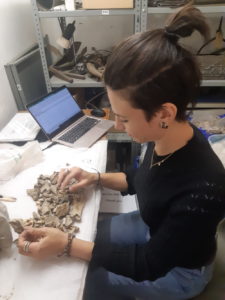
Cardiff University research projects, carried out under the supervision of Dr Richard Madgwick (C) Carmen Esposito.
In November 2019, the Museum was awarded £47,000 from the Arts Council England Designation Development Fund, to review the research undertaken on our nationally important archaeology collections. From 2010-2020, more than 200 postgraduate students undertaking archaeological research visited the Museum to access the collections, but only a small fraction of their work had been fed back into our collections database and gallery displays. One of the main aims of the project was to identify the results of all this research and then update museum records, to improve our collections management systems. At the end of the project, we have now created 1,900 enhanced MODES records, documenting in detail all this work, and from 2023, these records will be shared online, as part of the Wessex Museums Virtual Collections database, making the information accessible in the widest possible terms.
On the completion of your studies, we kindly request that you deposit of copy of your research with the Museums. We are delighted to accept all articles, theses and books which contain the results of the research that you have undertaken on our collections and these will be accessioned in our Archive & Library collection.
We also ask, where appropriate, that you consider allowing us to make a short video of your visit - describing your research objectives, to share with the wider public. We have recently started a new project to record researchers who come to the Museum to study the archaeology collections. If you would like to be a part of this, the Curator will explain the detail of what is required prior to your visit.
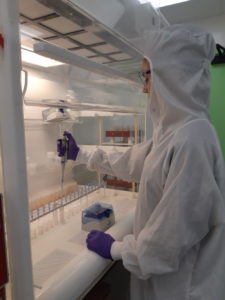
Cardiff University research projects, carried out under the supervision of Dr Richard Madgwick (C) Carmen Esposito.
(Spreadsheet columns cannot be modified or added to)
October 2022: as part of the Wealth of Knowledge Project, the museum has developed a new system that will enable us to import your research results directly into our collections management system, MODES. Going forward, using these two spreadsheets, we will require all researchers to feedback their results to us, as part of the access to collections agreement / Research Charter. Please contact the Curator if you would like to discuss this further, prior to your visit.
Both images: Cardiff University research projects, carried out under the supervision of Dr Richard Madgwick (C) Carmen Esposito.
Collections highlights
Jerusalem – a play by Jez Butterworth
Jerusalem – the play by Jez Butterworth – is set in the village of Flintock, which is based on the Wiltshire village of Pewsey. It
Roundway Abbess
In around 670AD, a important Saxon lady was buried on Roundway Down, close to Devizes. She was laid to rest on a wooden bed, wearing
The Marlborough Bucket: a masterpiece of Celtic art
The Marlborough bucket is no ordinary bucket! It was created to be the centrepiece of tribal gatherings and held over 100 litres of wine or
School medal awarded at Frances Elliott’s School for Young Ladies
Silver school prize medal inscribed Mrs Elliott’s Ladies Boarding School, Devizes on one side and A Reward of Merit from Mr Burgess, teacher of dancing

